Contract Centralized

What is a smart contract ?
Smart contracts are self-executing contracts with the terms of the agreement between buyer and seller being directly written into lines of code, which exist across a distributed, decentralized blockchain network. They allow for transactions and the transfer or distribution of cryptocurrencies to be executed automatically without the need for a central authority, legal system, or external enforcement mechanism. Smart contracts are autonomous, immutable, traceable, and decentralized. They have various use cases such as cryptocurrency transactions, insurance claims, supply chain management, real estate transactions, gambling and betting, and legal documents. The benefits of smart contracts include efficiency, transparency, security, speed, and accuracy. However, there are challenges and considerations such as code quality, lack of legal recognition, interoperability issues, and privacy concerns.

What is the difference between a regular contract and a smart contract ?
A regular contract and a smart contract differ in terms of their **nature**, **enforceability**, **cost**, **speed**, and **transparency**. Below are the key differences between these two types of contracts: ## Nature ### Regular Contract - Legal agreement between two or more parties. - Typically written in natural language (e.g., English). - Governed by local laws and regulations. ### Smart Contract - Self-executing contract with the terms directly written into code. - Deployed on a blockchain network. - Enforced by the underlying code and cryptographic protocols. ## Enforceability ### Regular Contract - Relies on legal institutions for enforcement (e.g., courts). - May involve mediation or arbitration processes. - Penalties for breach can be monetary or involve other forms of relief. ### Smart Contract - Autonomously executes when predetermined conditions are met. - Enforcement is decentralized and automated. - Penalties for breach are typically programmed into the contract logic. ## Cost ### Regular Contract - Can be costly due to legal fees, notary services, and potential litigation expenses. - Involves overhead of paper-based record keeping and manual processing. ### Smart Contract - Generally less expensive because it eliminates intermediaries. - Costs associated with blockchain transaction fees and contract deployment. ## Speed ### Regular Contract - Time-consuming process from negotiation to signing and execution. - Settlement times can vary widely depending on the complexity of the agreement. ### Smart Contract - Faster execution once the conditions are met. - Real-time settlements possible due to automation. ## Transparency ### Regular Contract - Limited transparency; only involved parties have access to the contract details. - Requires trust in the counterparty to disclose all relevant information. ### Smart Contract - High transparency; contract code and transactions are visible on the blockchain. - Trust is placed in the immutable and verifiable nature of the blockchain.

How can schools address the issue of contract cheating, where students pay others to complete their assignments or exams ?
Addressing contract cheating in schools is crucial for maintaining academic integrity. Effective measures include using advanced plagiarism detection tools, educating students on academic integrity, encouraging open discussions, providing support services, and collaborating with parents and guardians. These strategies can deter students from engaging in contract cheating and promote a culture of original work.

Are there any hidden fees or contracts associated with upgrading my broadband ?
When upgrading broadband, beware of early termination fees, equipment rental costs, and installation charges. Also, understand contract minimums and auto-renewal clauses before committing.
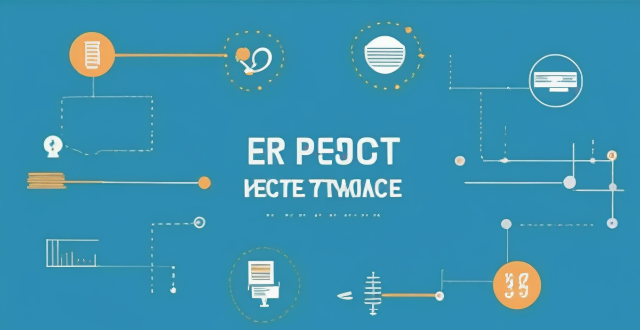
How do smart contracts work ?
Smart contracts are self-executing contracts with the terms directly written into code, operating on a decentralized blockchain network. Key features include autonomy, trustless transactions, immutability, and traceability. The working mechanism involves deployment, execution based on predefined conditions, verification through consensus algorithms, and settlement updating contract states. Benefits encompass efficiency, transparency, security, and the removal of intermediaries. Challenges include legal recognition, coding errors, and handling complex logic. Smart contracts revolutionize traditional contract law by enabling secure, automated, and transparent transactions on blockchain networks.

What is decentralized finance (DeFi) and how does it work ?
Decentralized finance (DeFi) is a financial system based on blockchain technology that operates without intermediaries like banks. It is transparent, borderless, permissionless, and interoperable. The core components of DeFi are smart contracts, cryptocurrencies, decentralized applications, and blockchain infrastructure. Users can access DeFi platforms through wallets, provide collateral for loans, earn interest by depositing their cryptocurrencies into lending platforms, trade assets peer-to-peer, get insurance against risks associated with smart contracts and cryptocurrency holdings, and have voting rights within the ecosystem. However, DeFi faces challenges such as scalability issues, regulatory uncertainty, security risks, and user experience complexity. Despite these challenges, DeFi has immense potential to democratize finance and provide inclusive solutions.
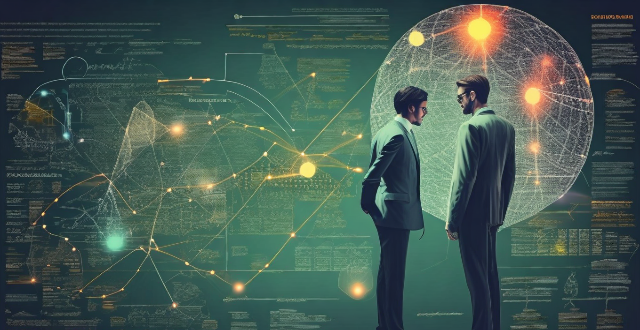
What are the potential risks associated with smart contracts ?
Smart contracts revolutionize digital transactions but pose risks like code vulnerabilities, legal uncertainties, lack of human oversight, interoperability issues, and privacy concerns. Users must understand these potential pitfalls before engaging in smart contract agreements to mitigate adverse outcomes.

What are the legal implications of using smart contracts ?
Smart contracts, self-executing contracts with terms written in code on a blockchain, raise legal questions about enforceability, jurisdiction, privacy, security, and regulatory compliance. Best practices include consulting a legal expert, clearly defining terms, considering jurisdiction, and prioritizing privacy and security.

How secure is decentralized finance compared to traditional finance ?
The text provides a comparative analysis of the security aspects of decentralized finance (DeFi) and traditional finance (TradFi). DeFi relies on blockchain technology for peer-to-peer transactions, while TradFi operates through centralized institutions. Both systems have unique security features and risks, with DeFi offering transparency and automated contract execution but facing smart contract vulnerabilities and lack of regulatory clarity. TradFi benefits from regulatory oversight and physical security measures but is susceptible to systemic risks and cybersecurity threats. The choice between DeFi and TradFi depends on individual preferences and risk tolerance, and it's crucial to stay informed about new developments in the evolving financial landscape.

What is the best cryptocurrency to invest in ?
The article provides a summary of the best cryptocurrencies to invest in, including Bitcoin (BTC), Ethereum (ETH), Binance Coin (BNB), and Cardano (ADA). It highlights the pros and cons of each cryptocurrency, such as high liquidity and widespread adoption for Bitcoin, smart contract functionality and a large developer community for Ethereum, usefulness on the Binance exchange and a burn mechanism for Binance Coin, and a strong academic foundation and focus on security and sustainability for Cardano. The conclusion emphasizes the importance of considering factors such as liquidity, adoption, and potential for growth when choosing a cryptocurrency to invest in, and encourages readers to do their own research before making an investment decision.
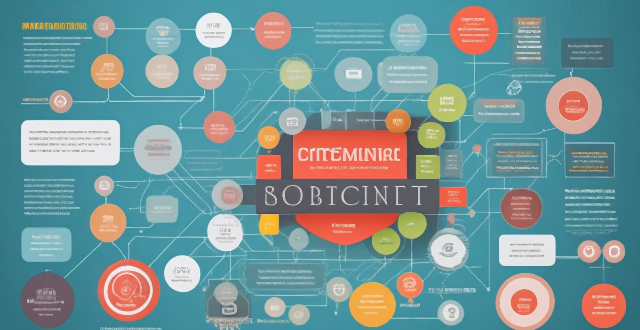
How can smart contracts be used to streamline financial transactions ?
Smart contracts can streamline financial transactions by automating processes, reducing costs, and increasing efficiency. They can automate payments and transfers, act as escrow services, create loan agreements, streamline insurance claims, and facilitate trading and exchanges of financial assets. As blockchain technology evolves, we can expect more innovative uses for smart contracts in the financial industry.

What impact does decentralized renewable energy have on the electric grid ?
Decentralized renewable energy sources, such as solarDecentralized renewable energy sources, such as solarbines, have a significant such as solar panels and wind turbines, have a significant impact on the electric grid. They reduce dependence on centralized generation, affect grid stability and reliability, require infrastructure changes, have economic implications, provide environmental benefits, and empower communities. As technology advances and costs decrease, decentralized renewable energy is expected to be increasingly adopted worldwide, offering numerous benefits in terms of sustainability, development, and community control over energy sources.
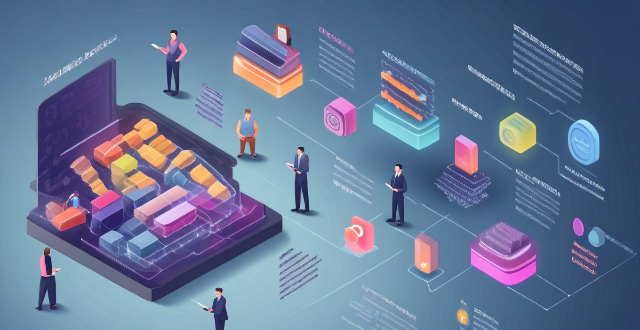
What are smart contracts in the context of blockchain ?
Smart contracts are self-executing digital agreements that operate within the blockchain, providing a decentralized and trustless system for transactions. They are created using specific programming languages and deployed onto a blockchain platform. Once conditions are met, smart contracts execute automatically, with each node verifying the process to ensure accuracy. Applications include cryptocurrencies, supply chain management, real estate, insurance, and legal agreements. However, challenges like immutability, complexity, legal standing, and privacy concerns must be addressed.

What are the benefits of hiring a sports agent for career management ?
Hiring a sports agent can bring numerous benefits to an athlete's career management, including negotiating contracts and deals, marketing and branding assistance, legal representation, and career planning and development. By working with an experienced sports agent, athletes can focus on their performance while leaving the business side of their careers in capable hands.

Can smart contracts be used in traditional businesses ?
Smart contracts, self-executing contracts with terms written into code, can be used in traditional businesses but have limitations such as legal issues and complexity. They offer advantages like transparency, efficiency, and security but also present challenges like lack of human touch and privacy concerns. Businesses should carefully consider their specific needs before adopting this technology.

What are the benefits of using smart contracts ?
Benefits of Using Smart Contracts Smart contracts are self-executing contracts with the terms of the agreement between buyer and seller being directly written into lines of code. They offer a range of benefits including automation, transparency, security, efficiency, and cost savings. By automating processes and reducing the need for intermediaries, smart contracts can save time and money, as well as reduce the risk of errors or fraud. They are secured by cryptography, which makes them extremely difficult to hack or manipulate. This security feature can be particularly useful in situations where sensitive information needs to be shared between parties. Smart contracts can also lead to cost savings by reducing the need for intermediaries or third parties. As blockchain technology continues to evolve, it is likely that we will see even more innovative uses for smart contracts in the future.

What role does sports economics play in determining player salaries and contracts ?
Sports economics plays a crucial role in determining player salaries and contracts by considering various factors such as market demand and supply, revenue generation, cost of production, risk management, competitive balance, and free agency. Teams must make informed decisions about player compensation while balancing financial considerations with the goal of achieving success both on and off the field.

What role does software-defined networking (SDN) play in enabling network slicing ?
Network slicing is a key feature of 5G networks that allows operators to create multiple virtual networks on top of a shared physical infrastructure. SDN plays a crucial role in enabling network slicing by providing the necessary flexibility and programmability to manage and control the network resources. The SDN architecture consists of three main components: the data plane, the control plane, and the management plane. SDN enables network slicing by providing a centralized view of the network resources and allowing operators to dynamically allocate these resources to different slices based on their QoS requirements. Key benefits of SDN for network slicing include flexibility, programmability, centralized control, and resource optimization. Use cases for SDN in network slicing include mobile broadband, IoT, and enterprise networks.

Are there any risks associated with investing in DeFi ?
Investing in DeFi comes with risks such as smart contract vulnerabilities, impermanent loss, regulatory uncertainty, and lack of transparency. It is important for investors to carefully evaluate these risks before investing in any DeFi project.

Are there any discounts or promotions available for switching to a new mobile operator ?
When considering switching to a new mobile operator, itWhen considering switching to a new mobile operator, it if there are any discounts or we will explore the various incentives that mobile operators may offer to attract new customers and retain existing ones. These incentives can include sign-up bonuses, referral programs, trade-in deals, and loyalty rewards. However, it's essential to consider factors such as contract terms, coverage, hidden fees, and compatibility before making the switch. By weighing these factors carefully, you can make an informed decision about whether switching to a new mobile operator is right for you.

How do distributed energy systems contribute to energy efficiency and sustainability ?
Distributed energy systems (DES) play a significant role in improving energy efficiency and sustainability. DES refers to a comprehensive energy utilization system located near the end-users, which can operate independently or in conjunction with the grid. It encompasses various technologies such as combined heat and power (CHP), renewable energy, energy storage, and fuel cells. Here is a detailed exploration of how distributed energy systems contribute to energy efficiency and sustainability: 1. **High Energy Efficiency** - **Combined Heat and Power (CHP)**: CHP systems generate both electricity and heat simultaneously, providing an overall efficiency of up to 80%-90%. This is considerably higher than traditional centralized power plants, which typically have an efficiency of around 40% for advanced coal-fired power plants. - **Energy Cascade Utilization**: Distributed energy systems utilize energy cascading, where the byproducts of one process are used as inputs for another. For example, waste heat from electricity generation is used for heating or cooling, maximizing energy utilization. - **Reduced Transmission Losses**: Due to their proximity to consumers, DES reduces the need for long-distance transmission of electricity, thereby minimizing transmission losses compared to centralized power systems. 2. **Environmental Protection** - **Low Emissions**: Distributed energy systems often use clean energy sources like natural gas, solar, and wind, which have lower emissions compared to traditional coal or oil combustion. - **Renewable Energy Integration**: Distributed energy systems can easily integrate renewable energy sources like solar panels and wind turbines, promoting the use of sustainable energy. - **Waste Reduction**: By using waste heat and integrating multiple forms of energy production, DES helps reduce energy waste and its associated environmental impact. 3. **Economic Benefits** - **Cost Savings**: Distributed energy systems can reduce energy costs by decreasing transmission and distribution expenses. They also provide more stable energy prices compared to fluctuating grid rates. - **Infrastructure Investment Reduction**: Since DES requires less infrastructure compared to large-scale power plants and transmission networks, it can lead to significant cost savings in infrastructure investment. - **Market Potential**: The development of DES has opened up new markets and business opportunities, especially in the sale and maintenance of distributed energy equipment. 4. **Enhanced Reliability and Resilience** - **Decentralized Architecture**: The decentralized nature of DES means that if one system fails, others can still operate, ensuring continuous energy supply. - **Storm and Disaster Resilience**: During large-scale disasters or extreme weather events, DES can serve as a crucial energy source when centralized power systems fail. 5. **Promotion of Smart Grid Development** - **Integration with Smart Grids**: Distributed energy systems can be integrated with smart grids, enabling two-way flows of electricity and information, which enhances overall grid efficiency and responsiveness. - **Demand Response Management**: DES allows for better demand response management, where consumption can be adjusted based on real-time supply and demand conditions, further enhancing energy efficiency. Additionally, there are several challenges and considerations for the widespread adoption of distributed energy systems: - **Technical Challenges**: The integration of multiple energy sources requires advanced technical expertise and sophisticated control systems. - **Policy Support**: While policies increasingly support DES, more comprehensive regulations and incentives are needed to encourage wider adoption. - **Economic Viability**: Although DES offers economic benefits, the initial investment can be high, which may limit access for some users. In summary, distributed energy systems contribute significantly to energy efficiency and sustainability through high energy utilization efficiency, environmental protection, economic benefits, enhanced reliability and resilience, and promotion of smart grid development. Despite certain challenges, the advantages of DES make it a critical component of future energy strategies.
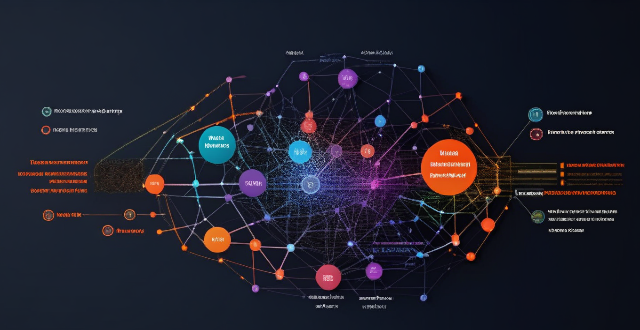
What are the latest techniques in network optimization ?
The article discusses the latest techniques in network optimization, which include software-defined networking (SDN), network function virtualization (NFV), machine learning and artificial intelligence (AI), edge computing, and multipath transmission control protocol (MPTCP). SDN separates the control plane from the data plane, allowing for centralized management and control of network devices. NFV replaces traditional hardware-based network functions with virtualized versions running on standard servers. Machine learning and AI enable networks to automatically detect and respond to changes in traffic patterns, optimizing performance without manual intervention. Edge computing brings computational resources closer to the end users or devices, reducing latency and improving overall network performance. MPTCP allows multiple paths between two endpoints to be used simultaneously, reducing congestion and improving reliability. These techniques ensure that networks are efficient, reliable, and capable of handling increasing amounts of data.

What are the potential risks associated with sports sponsorship and how can they be mitigated ?
Sports sponsorship is a popular marketing strategy used by companies to promote their brand, products, or services. However, there are potential risks associated with sports sponsorship that need to be considered and mitigated. These risks include reputational risk, financial risk, and legal risk. To mitigate these risks, companies should conduct thorough research on the athlete/team before signing a sponsorship deal, ensure alignment between the sponsor's values and those of the sponsored entity, set clear budgets for sponsorship activities, monitor the performance of the sponsored entity, negotiate flexible contract terms, and work with legal experts to ensure compliance with all relevant laws and regulations. By managing these risks, companies can maximize the benefits of their sports sponsorship investments.
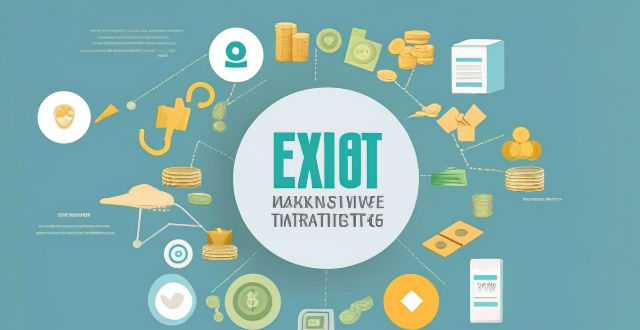
How much do celebrities typically get paid for endorsing a product ?
Celebrity endorsements are a common marketing strategy used by brands to promote their products or services. The amount of money that celebrities earn from endorsements can vary widely depending on several factors, including the celebrity's popularity, the type of product being endorsed, and the length of the contract. In this article, we will explore some of the key factors that determine how much celebrities typically get paid for endorsing a product.

How can international cooperation aid virus origin tracing efforts ?
The text discusses the importance of international cooperation in virus origin tracing efforts. It outlines various ways in which collaboration can aid this process, including sharing information and data through global databases and real-time reporting systems; pooling resources and expertise by establishing centralized laboratories and training programs; coordinating responses and policy making through global health organizations and international agreements; and building public trust through transparent communication and community engagement. The text emphasizes that successful virus origin tracing requires a multidisciplinary approach and the involvement of experts from different fields. It highlights the need for transparency, openness, and ethical considerations in research activities to ensure cultural sensitivity and community benefits. Overall, the text underscores the significance of international cooperation in unraveling the mysteries of virus origins and preventing future pandemics.

What are the potential consequences of communication breaches in business environments ?
Communication is crucial in any business setting, but communication breaches can have severe consequences. These can include a lack of trust, decreased productivity, negative impact on customer satisfaction, and legal consequences. Misinterpretation of information, reduced collaboration, time wasted on misunderstandings, lower employee morale, inconsistent messages to customers, delayed response times, breach of contract, and non-compliance with regulations are all potential outcomes of communication breaches. It is essential for businesses to prioritize effective communication practices to avoid these issues.

What are the latest advancements in communication satellite technology ?
The latest advancements in communication satellite technology include high-throughput satellites (HTS), low Earth orbit (LEO) satellites, and software-defined networking (SDN) and network function virtualization (NFV). HTS offers increased capacity, faster internet speeds, and improved coverage. LEO satellites provide reduced latency, improved signal strength, and global coverage. SDN and NFV enable centralized management, flexibility, scalability, and improved security. These technologies are transforming the way we communicate across the globe.